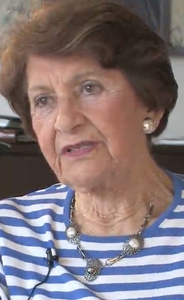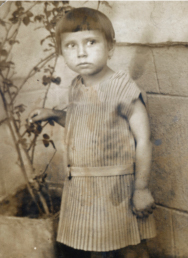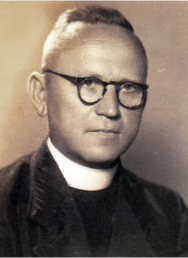
Chris Lerman
2014. Philadelphia
And let me explain you what aggravated me very, very much. The factories began just beyond the village, where Wierzbnik ended and Starachowice started. The factory area was closed in with a very, very high fence. I had to pass the factories on my way to high school. There was a sidewalk along fences that we passed for about two, three kilometers. And every day, there was graffiti, scrawled on the fences: Jid o Palestini, Bi Jida. Hit the Jew or kill the Jew. And it was not comfortable. You walk to school with a bunch of kids and you see all those signs on the wall, they make you very, very uncomfortable. And you can’t say anything.

I remember one day a Jew approached from the opposite direction and he was an orthodox Jew so he had his, peot (earlocks), and he had the black hat, the beard, a very neat, clean man.
The boys ganged up on him. First of all, they pushed him so that his hat fell off. Then they kicked him and I got very upset and I said to them: “Why are you doing that to him? What has he done to you?“ There was an expression right before the war, used to demean Jews: ‘kike.’ I don’t know how it originated. I didn’t even know what the word meant but the boys yelled at the man and hit him until he fell to the ground.
And I said, “Why do you do that to him? What has he done to you?“ One boy said, “Because he is kike“ and I said “So I’m a kike too“. So they answered “But you are our kike“.
I’m accepted. So, I’m still a kike but I am accepted. I’m theirs.
BULLYING STORIES

“It’s something that never leaves you. It’s something you never forget, no matter how long you live.”
STANDING UP STORIES

“The priest gave me a Christian name for my false papers. I’ve kept it ever since because he didn’t just give me a name, he gave me a life.”